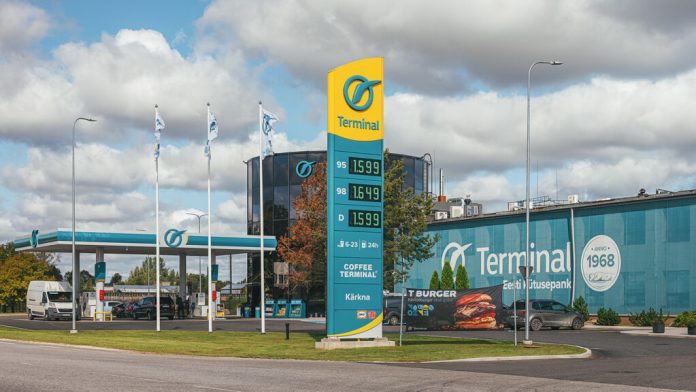Fuel seller AS Terminal turned to the European Commission last month, requesting an investigation into unlawful state aid provided by the Estonian government, which has allegedly harmed competition in the local fuel market.
According to Terminal’s complaint, the Estonian government has granted unlawful state aid to another fuel seller, AS Olerex, by allowing it to avoid fulfilling biofuel obligations for several years. Terminal claims this not only undermines the EU’s environmental goals but also distorts market competition.
“The advantage Olerex gained by not meeting biofuel requirements has directly impacted market competition and harmed consumers. The Estonian fuel market needs to be regulated, and all market participants must comply with the law. The government must enforce fairness and compensate for the damages caused to honest businesses,” said Raido Raudsepp, a member of the management board of AS Terminal.
Compliance with biofuel obligations incurs additional costs for fuel companies. The Estonian Transport Fuels Association estimates that Olerex could have gained up to 35 million euros annually from non-compliance, in addition to potential fines of up to 20 million euros a year that the Estonian government has refused to collect.
This financial advantage has allowed Olerex to increase its market share and profits at the expense of competitors, leading to reduced competition and higher fuel prices for certain consumer segments.
Estonian authorities have cited procedural complexities as the reason for not fining Olerex for repeated biofuel breaches from 2021 to 2023. Monitoring compliance with regulations is a fundamental government responsibility, and failure to do so cannot be used as an excuse for providing unlawful state aid.
The Estonian Competition Authority also started supervision proceedings regarding Olerex’s competition-distorting practices at the end of 2023.
“Although the Competition Authority acknowledged a lack of sufficient oversight in its June 2024 fuel market review, it has not yet taken specific actions against Olerex’s violations. Consequently, market competition remains poor, and Estonian consumers are forced to pay higher fuel prices compared to the Baltic states,” Raudsepp added.
Family-owned AS Terminal, established in 1968 as Tartu Naftabaas, currently operates two liquid fuel terminals in Estonia, engages in bulk fuel sales, and runs 45 service and automatic stations across the country, employing 330 people.
Source: BNS
(Reproduction of BNS information in mass media and other websites without written consent of BNS is prohibited.)

